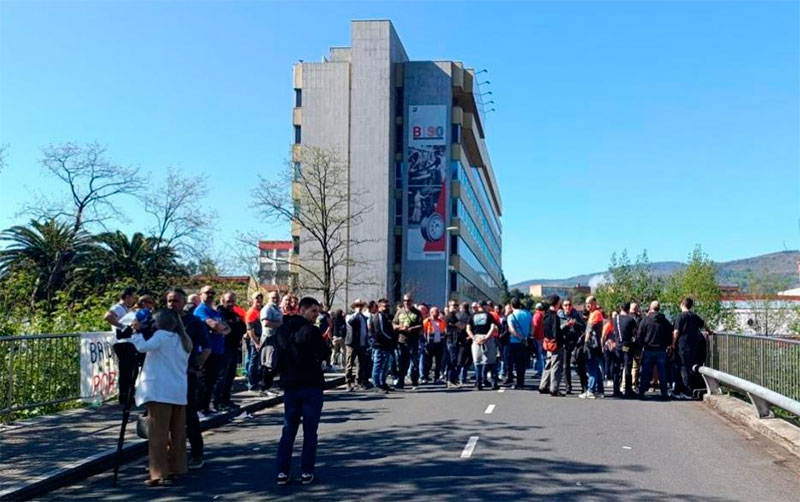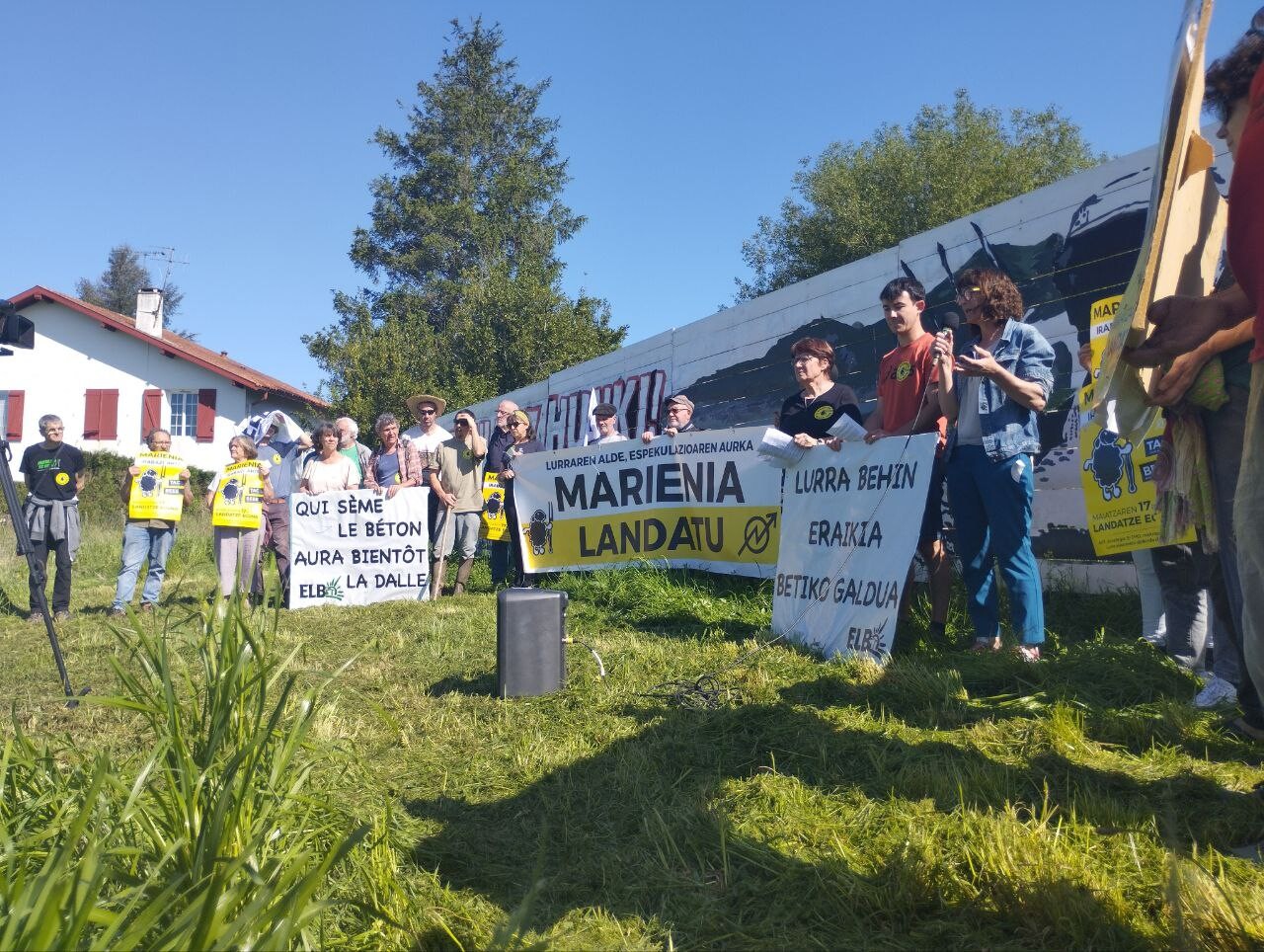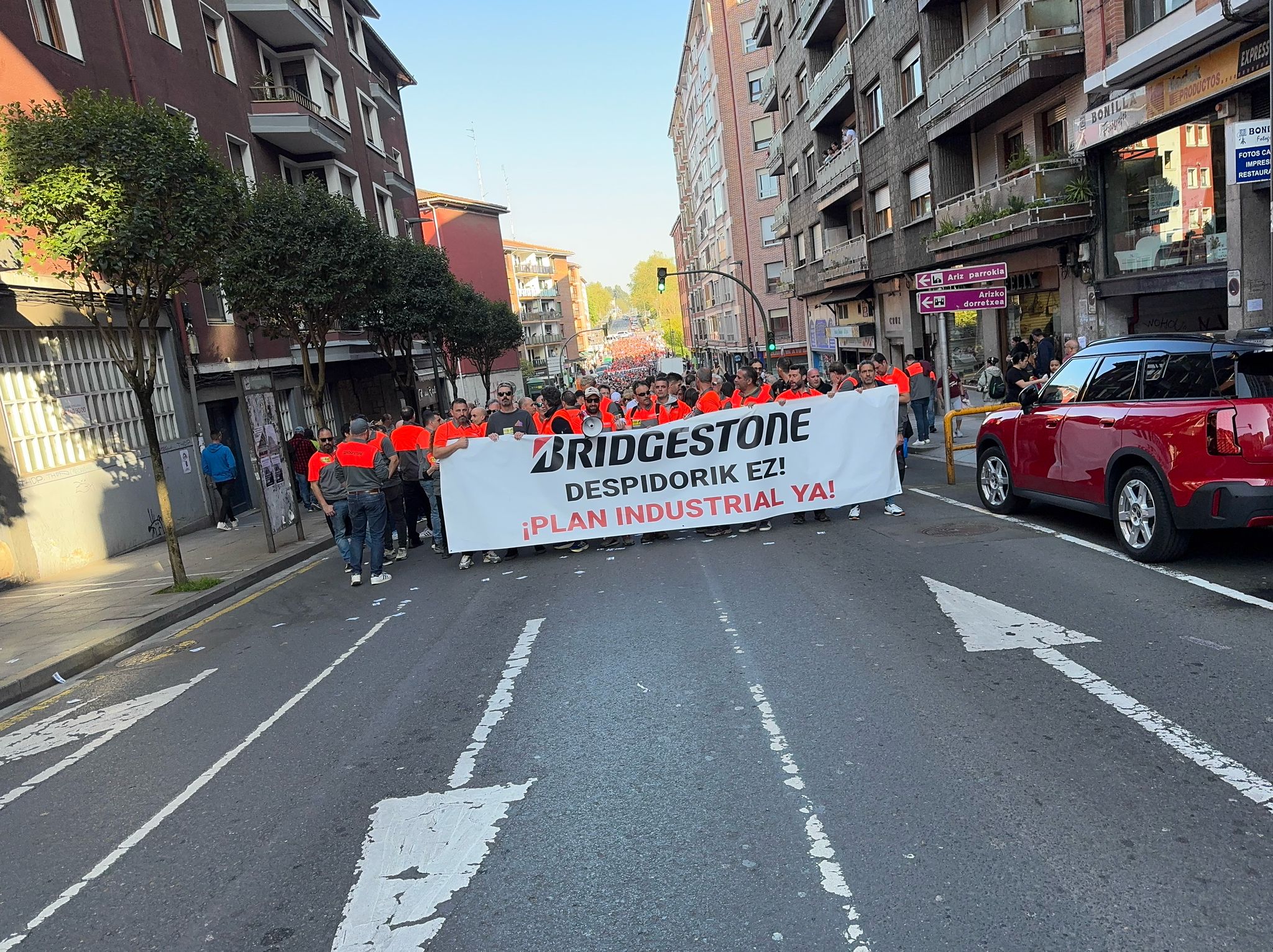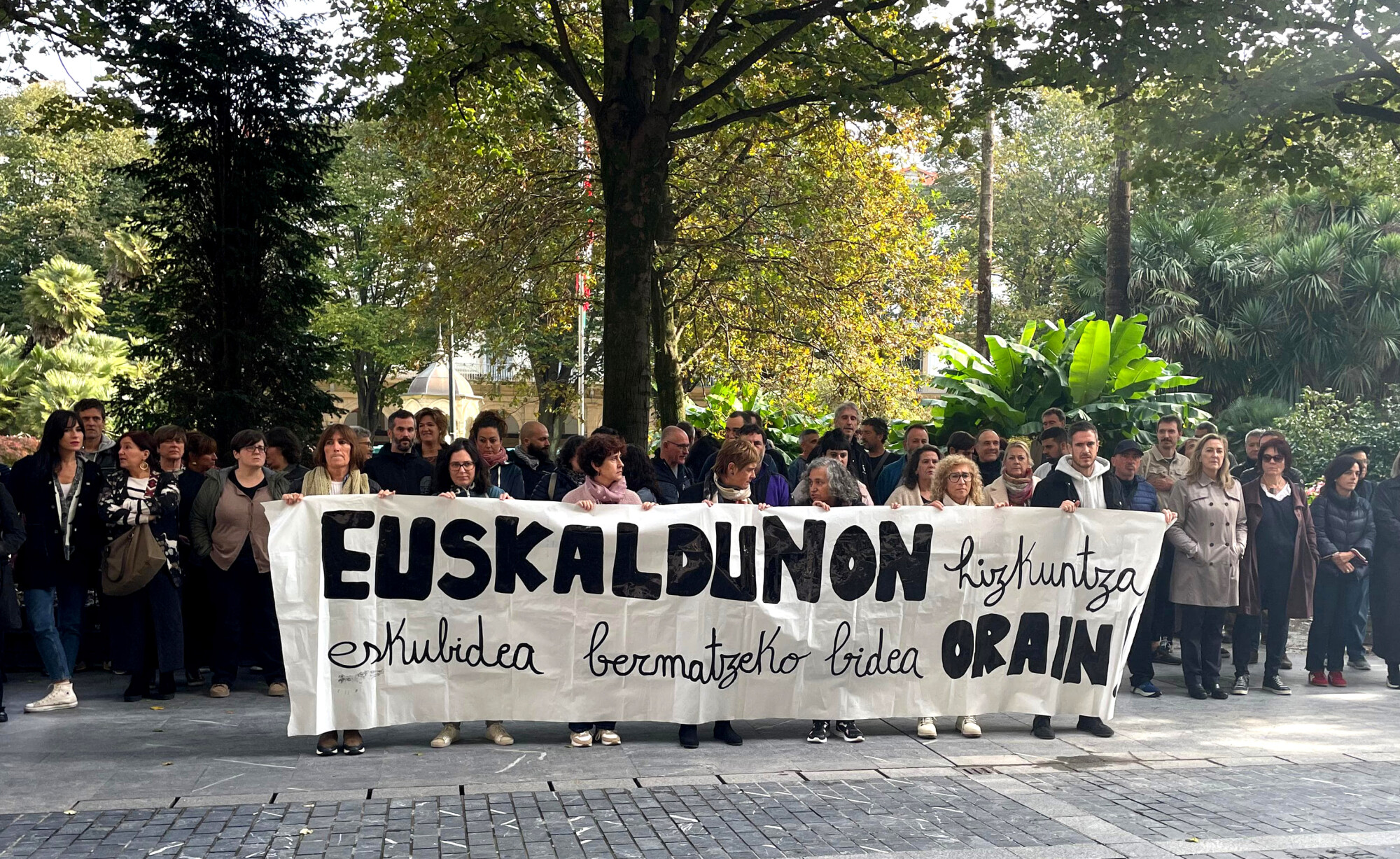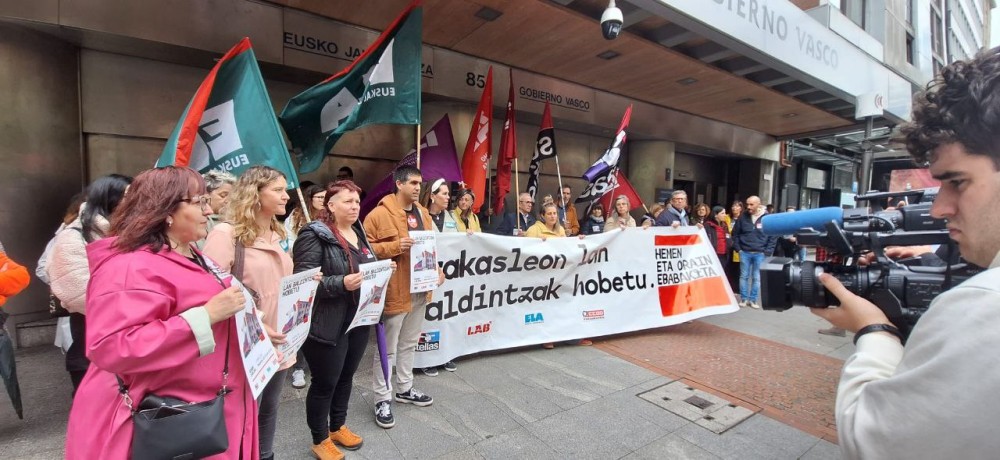With a historic mobilisation, the French strike has not yet succeeded in imposing on Macroni
- A new day of strike has been organised in Iparralde and in the French State. Two phenomena stand out. On the one hand, they say that the strike of the last decades is being the most massive movement, but on the other hand, contrary to what this may suggest, the government has done no inaction to obey the movement. What's going on?

A great wave of strike has opened up in the French State in the last two months, and every week hundreds of thousands of people have been on the streets to demonstrate for several days. The movement began on 19 January and on Tuesday 7 March last week, the unions wanted to mark a turning point: they prepared a big call to block the hexagon. According to his data, 3.5 million people demonstrated that day, 1.28 million according to the police. This fact is important for the movement that journalist Enric Bonet has studied perfectly in El Salton, since in 1962 he began to count the protesters of the French Police, there was never a day of street strike. A historic mobilization.
The movement is motivated by the law that is in the process of hardening the conditions of the retira: the neoliberal government of Emmanuel Macron wants to pass the toilet age from 62 to 64 years, and a minimum of 43 years will have to work to collect the complete toilet, among others. The new law advances, limiting the debate in the Senate and in the National Assembly to the fullest, the law passed the debate in the Senate on Sunday and will return to the National Assembly this week. An important week. Meanwhile, Macron witnessed last week’s tour of Africa, where trade unions rejected the formal appeal.
How can it be that the Macron government is not affected by the major strike mobilizations of recent decades?
Firstly, the first condition for any concession to the other party to be made in a conflict is that the same conflict is not recognised and the other side, that is to say, that it is rejected and that it does not sit at the negotiating table under any circumstances. A clear example of this is the conflict in Euskal Herria, as when the Declaration of Aiete 2011 “pilló” Patxi López in the USA.
On the other hand, we have to look at the kind of strike currently taking place in France, which, although historic, is following a long string of decades. As explained in the latest issue of Le SEUM Toulouse magazine, social struggles in France can be explained in part through “movements”: the strikes of May 1968, 1995 and 2006, the movement of Loi Travail of 2016 and Jaka Amarillo of 2019, and the ongoing strike, among many other things. These are mass movements that occupy the streets every several years, for days, weeks or months, shaking the country: mobilizations, strikes, uprisings. Some of them, like the current one, have stood up to deal with a series of measures announced by the incumbent government.

The 1995 mass strikes roared the government and got the law amending the portrait plan rejected; the 2006 strike also managed to reject the bill that precarized the first employment contracts. But the 2010 movement did not get the toilet age from 60 to 62; the 2016 movement failed to get the neoliberal labor reform back. Jaka These, despite the great force of the movement, only managed to postpone the application of the law. All these movements moved hundreds, thousands and millions of people, some close to the current numbers, others using other strengths.
In fact, compared to the great warmongering used by Jaka Horiek, the current strike movement is radically different. All the big unions have come together to support the strike, and in this respect they have organised very important mobilisations – two-thirds of the population is against reform. But this can be a strong point, like a weak point. Because, if you want to do all together, it has to be a strike at the liking of all the unions, and in that sense the strike has been very directed and at the same time limited.
Outside trade unions, other organisations, agents, parties, people, etc. They haven't found room next to all the big unions. The strike has also fallen on certain sectors that have a great habit of doing so – energy, waste collection, teachers, refineries, transport, among others – but the vast majority of society is not doing so, is participating in demonstrations.
The movement has therefore been based on the strike of a few sectors and on the broad and peaceful manifestations of the table. In the wave of strike that took place in 2010, the number of protesters was the weapon of unions against government, and so was the relational struggle between government and unions. Each attributed to the other the reduction or exaggeration of the numbers of protesters who left the street according to their interests. Thus, the extension of the strike is being limited, and with the demonstrations of strength of the demonstrations the unions have shown that they have numbers, but peaceful public opinion based on figures has not drawn the government.
Aware of this, the unions themselves decided to increase their wager on 7 March, replacing the one-off weekly strikes with the undefined strikes and blocking the country in addition to the demonstrations. But the wager has grown in the previous dynamic, the sectors mentioned are on indefinite strike and, apart from the blockades that have been opened here and there, many of them in strategic spaces, so the impact is not seen, the economy is still in progress. Thus it can be understood that that day, the greatest day of strike that has taken place so far, all the practical shops of Tolosa are open and operational, as if nothing happened.
As a result, the mass nature of the demonstrations has been the strength of the current strike, a dynamic that, for the time being, has not managed to break and settle the strategy of government denial. Instead of 62, if you do not want to end retirement with 64, which is no joke, which is more than two years’ work, the workers of the French State will have to add something more to the mass mobilisations in the coming days.
I found the old news on the LIGHT ephemeris channel: On April 23, 1918, Irish workers went on a general strike in I. Against forced recruitment for World War II. Thanks to the response of the workers and independence supporters, Britain was forced to retreat.
We don’t have to... [+]








